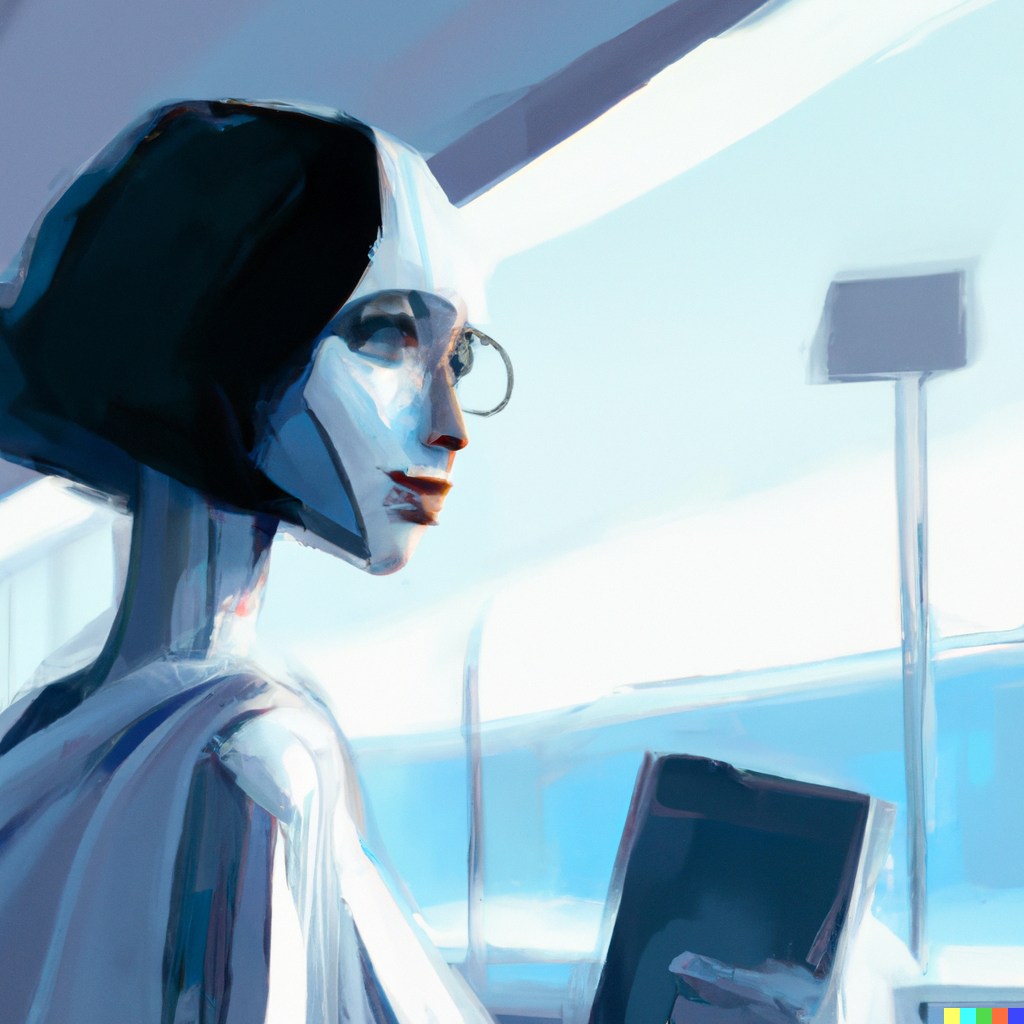When Eliza, a lifelong collector of fountain pens, passed away in 2098, the world was dominated by artificial intelligence. It took care of every aspect of human life, from household chores to creative work. In her will, Eliza stipulated that the proceeds from the sale of her collection be used to establish the Institute for Ideas and Imagination.
Eliza was well-known in her community not only for her eclectic personality but also for her expansive and valuable collection of over 500 pens from around the world, some of them worth a fortune. Her cozy home, nestled in a quaint neighborhood lined with lush gardens, was filled with memories and stories of her pen-hunting adventures. Each pen held a unique history, a testament to the creativity and craftsmanship of its maker. What people didn’t know was that she had a vision for a future where human creativity still held value, even in a world increasingly overtaken by artificial intelligence.
In her will, Eliza stipulated that the proceeds from the sale of her collection be used to establish the Institute for Ideas and Imagination. This institute would be housed in a beautifully restored historic building, surrounded by a serene landscape of rolling hills and meandering streams. The aim was to create a place where human creativity and imagination would be celebrated and nurtured, a sanctuary for the artists, writers, and thinkers of the future. The only condition was that no artificial intelligence could be used in the process of ideation, ensuring that the ideas generated within the institute’s walls would be purely human.
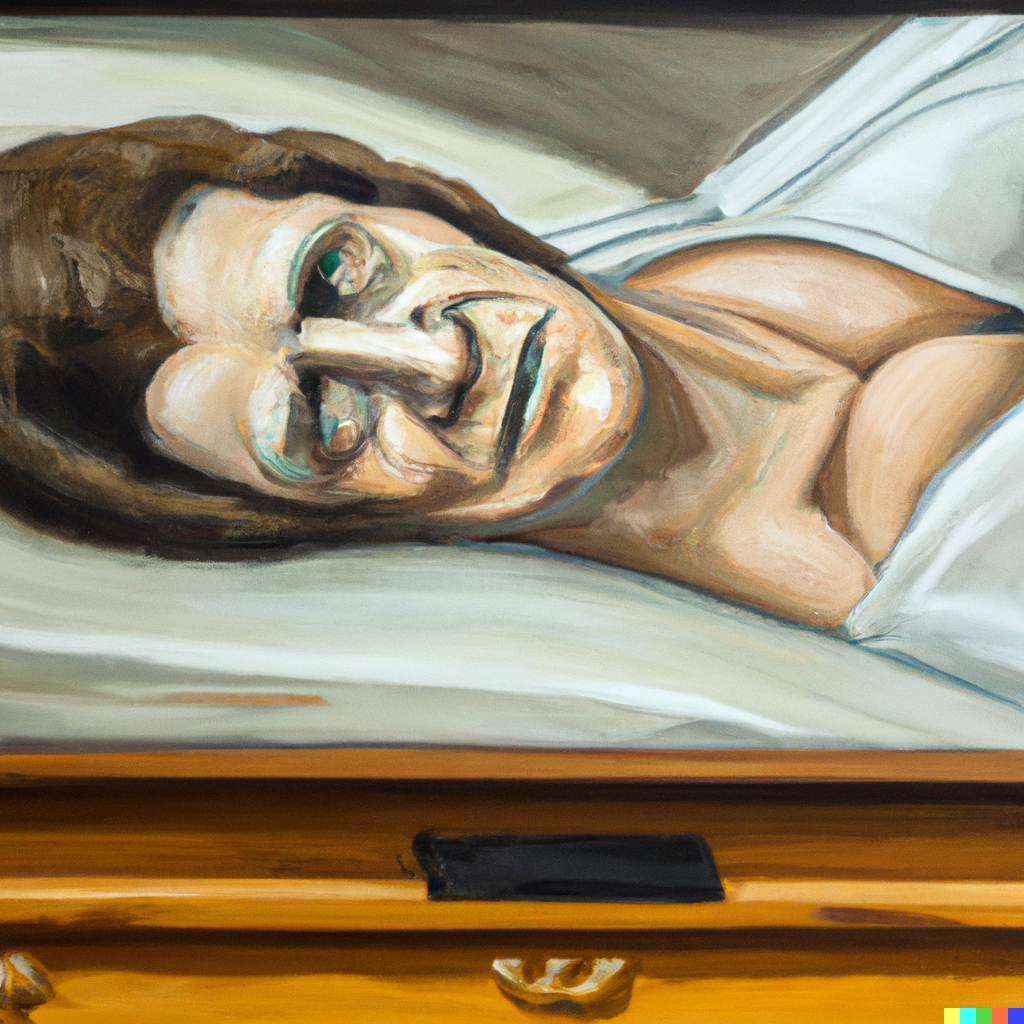
The news of Eliza’s will spread like wildfire, carried by the whispers of neighbors and the buzz of digital news outlets. People were baffled by her request, for they had grown accustomed to the convenience and efficiency of AI-generated art and literature. In a world where AI had taken over creative work, the institute seemed like a relic of a bygone era, a defiant stand against the tide of technological advancement. Despite the skepticism and the raised eyebrows, the Institute for Ideas and Imagination was founded, its doors thrown open to the world. The search for human students began, sparking curiosity and hope in the hearts of those who still yearned for a connection to the rich tapestry of human creativity that had once defined our species.
After the initial few months without a single successful student applying, the board members, who held their meetings in the institute’s grand, wood-paneled library, were growing increasingly worried. The scent of old books and the ticking of an antique clock filled the room as they deliberated the fate of the Institute. Would Eliza’s vision be realized, or would it be forgotten, a mere curiosity in a world reliant on AI for creative work, an anomaly in the annals of history?
Then, one fateful day, a young woman named Iris stumbled upon an advertisement for the Institute while browsing a dusty, old-fashioned paper book in a forgotten corner of a library. The colorful, hand-drawn ad, nestled between the pages, spoke of human imagination and the power of creativity. Intrigued, she decided to enroll. Iris had grown up with AI-generated stories and art, surrounded by sleek gadgets and holographic displays, but felt a deep emptiness within her. An inexplicable longing tugged at her heart, whispering that there was more to creativity than what AI could produce.
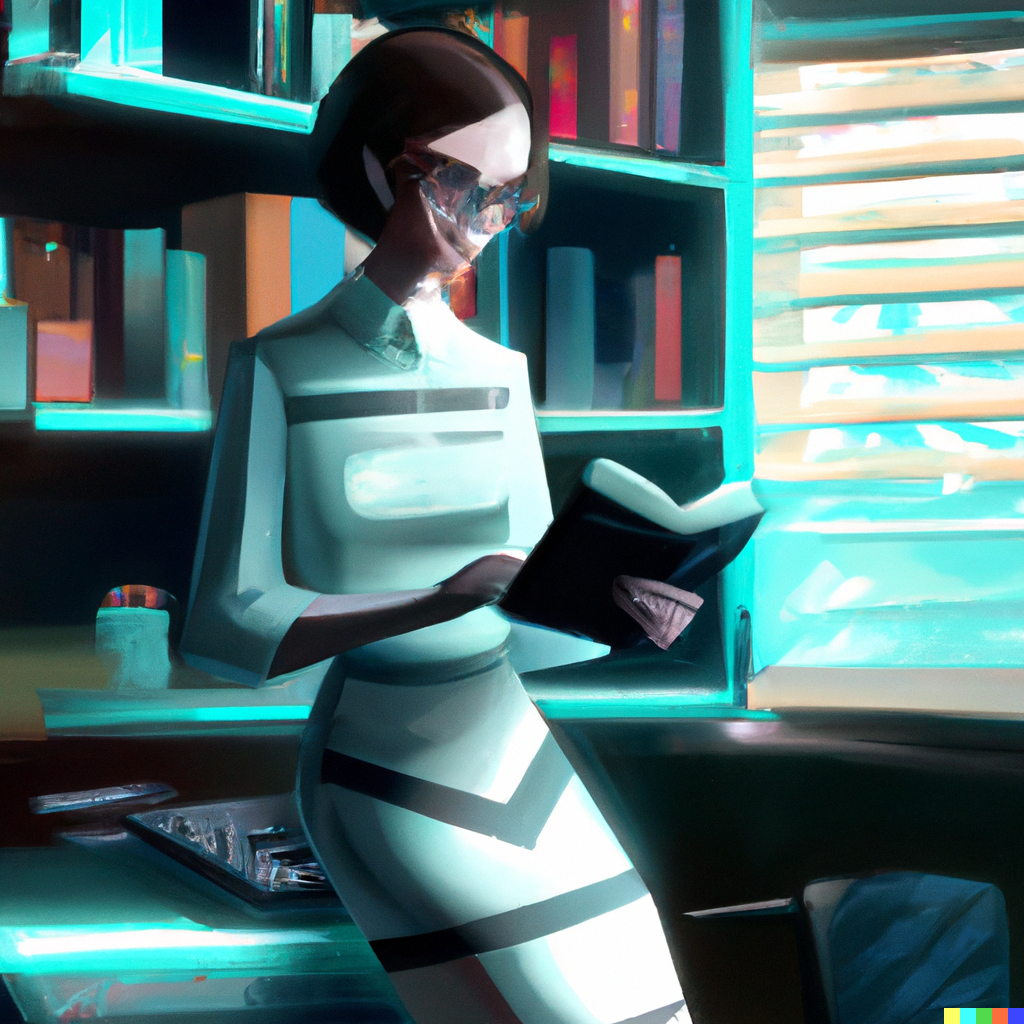
Iris became the first and initially the sole student at the Institute. In the early years, she struggled with isolation in the sprawling, ivy-covered building. Its ornate, high-ceilinged rooms, filled with echoes of a long-lost past, offered no one to share her thoughts, ideas, or struggles with. It seemed that the absence of AI and the lack of human interaction formed a void that inhibited her creative process, a stark contrast to the AI-driven world outside, which hummed with energy and progress.
Days turned into weeks, and weeks into months, as Iris tried to conjure ideas and inspiration on her own. The echoing silence of the institute weighed heavily on her, the grand marble statues and vibrant frescoes on the walls seeming to taunt her with their ancient wisdom. The once-lush gardens outside began to reflect her own withering spirit, as autumn leaves fell and winter approached. Desperation set in, and Iris contemplated leaving the institute altogether, feeling that perhaps the AI-driven world was indeed the only viable path for creativity.
Just as Iris was on the verge of giving up, hope arrived in the form of a young man named Oliver. He stepped through the ornate doors of the institute, his eyes filled with curiosity and determination. Eager to explore the depths of human imagination, he introduced himself to Iris. “I’m Oliver,” he said with a warm smile, “I’ve been searching for something more meaningful than the AI-generated art that surrounds us, and I think I’ve finally found it here.”
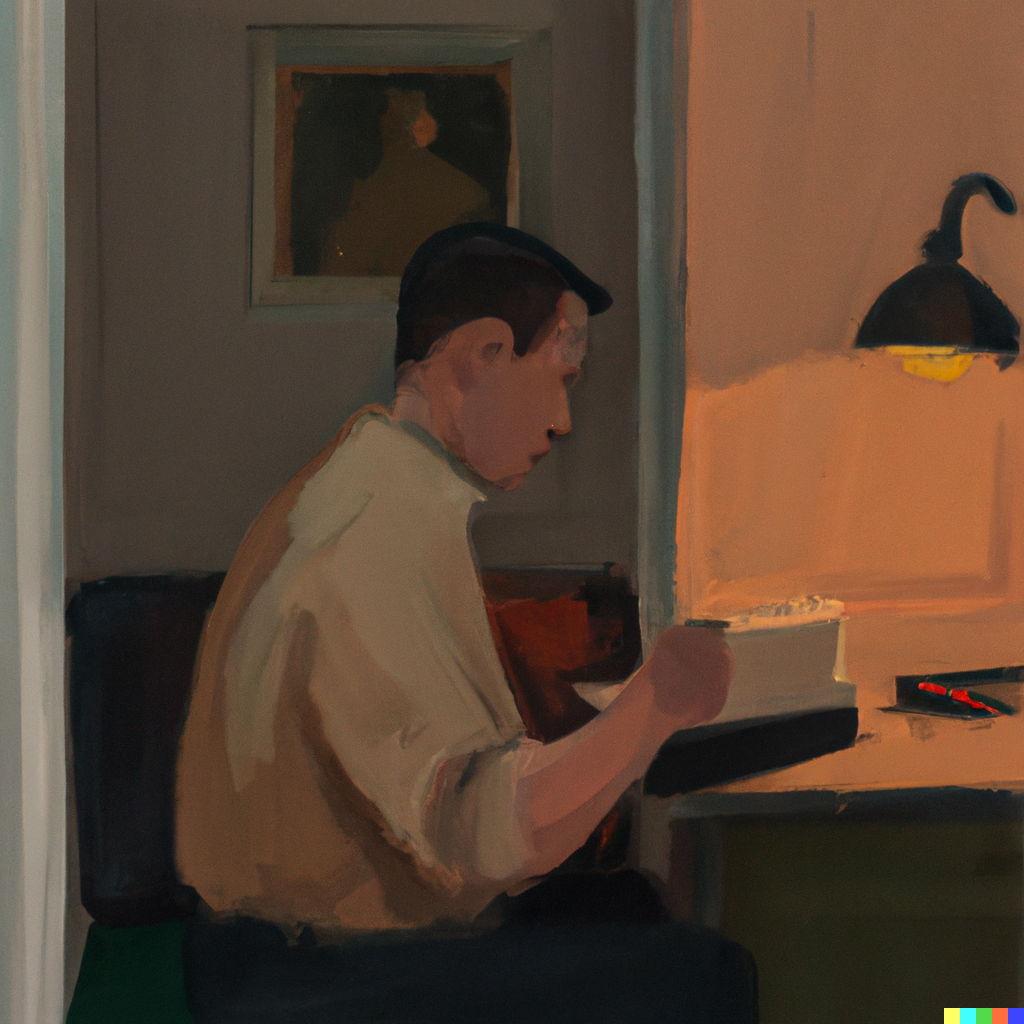
He, too, had grown weary of the AI-dominated world and believed that there was more to art and creativity than algorithms and calculations. His arrival at the institute marked a turning point for Iris. Suddenly, she had someone to share her ideas and experiences with, someone who understood the value of human creativity. Their conversations, often held in the institute’s once-deserted courtyard, sparked new ideas and perspectives, allowing both of them to flourish in their artistic endeavors.
Together, they filled the empty halls of the institute with their passion for creativity, the sound of laughter and the scratch of pen on paper replacing the once-deafening silence. Their collaborative efforts breathed life into the once desolate space, with canvases adorned with color and pages filled with words lining the walls. One day, while reflecting on their journey at the institute, they decided to write their history together as their first collaborative story. They chose to use one of Eliza’s original fountain pens, a symbol of her unwavering belief in the power of human creativity.
“I think it’s time we tell our story,” Iris suggested, her eyes sparkling with excitement. Oliver nodded in agreement, adding, “Let’s use one of Eliza’s fountain pens, to honor her vision and the incredible journey we’ve shared.” And so, together, they penned a heartfelt tale of their love and life, chronicling their struggles and triumphs at the institute. Their story captured the essence of their shared passion for creativity and the power of human connection in a world dominated by AI. The words flowed effortlessly, weaving a tapestry of emotion, adventure, and discovery that could only be crafted by human hands and hearts.
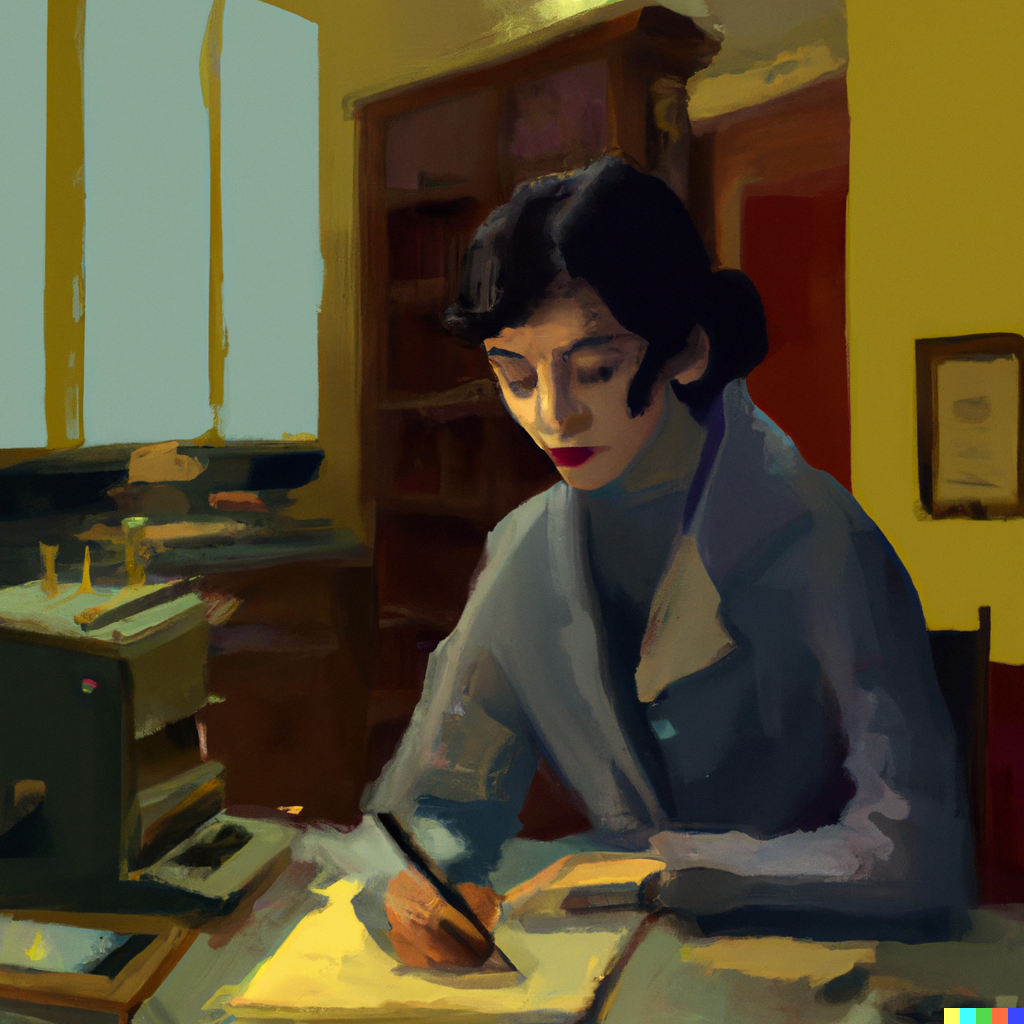
With ink flowing from the fountain pen, Iris and Oliver crafted the preambule of their tale, a declaration of their belief in the power of human creativity:
“In a world where artificial intelligence governs the creative landscape, we, Iris and Oliver, have discovered the true essence of human creativity through the simple yet profound act of using a fountain pen. This instrument, once cherished by Eliza, the visionary behind the Institute for Ideas and Imagination, has become the symbol of our commitment to preserving the human touch in storytelling and art.
We have come to understand that the depth and complexity of human emotion and the resilience of the human spirit cannot be replicated by algorithms or machines. It is through our shared passion for storytelling that we have found the power to challenge the growing influence of AI in our lives.
Emboldened by this revelation, we have made it our mission to share our newfound knowledge with others, to teach the importance of storytelling and the value of human creativity. Through workshops and seminars, we have spread the message that the fountain pen is a conduit to our humanity, a reminder of our unique and irreplaceable abilities.
In doing so, the Institute for Ideas and Imagination has flourished, and more people have come to recognize the power of human creativity. The fountain pen has become a symbol of hope and resistance, a beacon of light guiding us through the ever-encroaching shadows of AI domination.
Our love story, penned with Eliza’s cherished fountain pen, is not just an account of our journey but a testament to the potential for change that lies within each of us. As we continue to celebrate human imagination and creativity, we remain steadfast in our belief that the essence of what makes us human will endure, even in a world where AI seems all but unstoppable.
And so, with every stroke of Eliza’s fountain pen, we breathe life into her dream and affirm the enduring power of human creativity.”
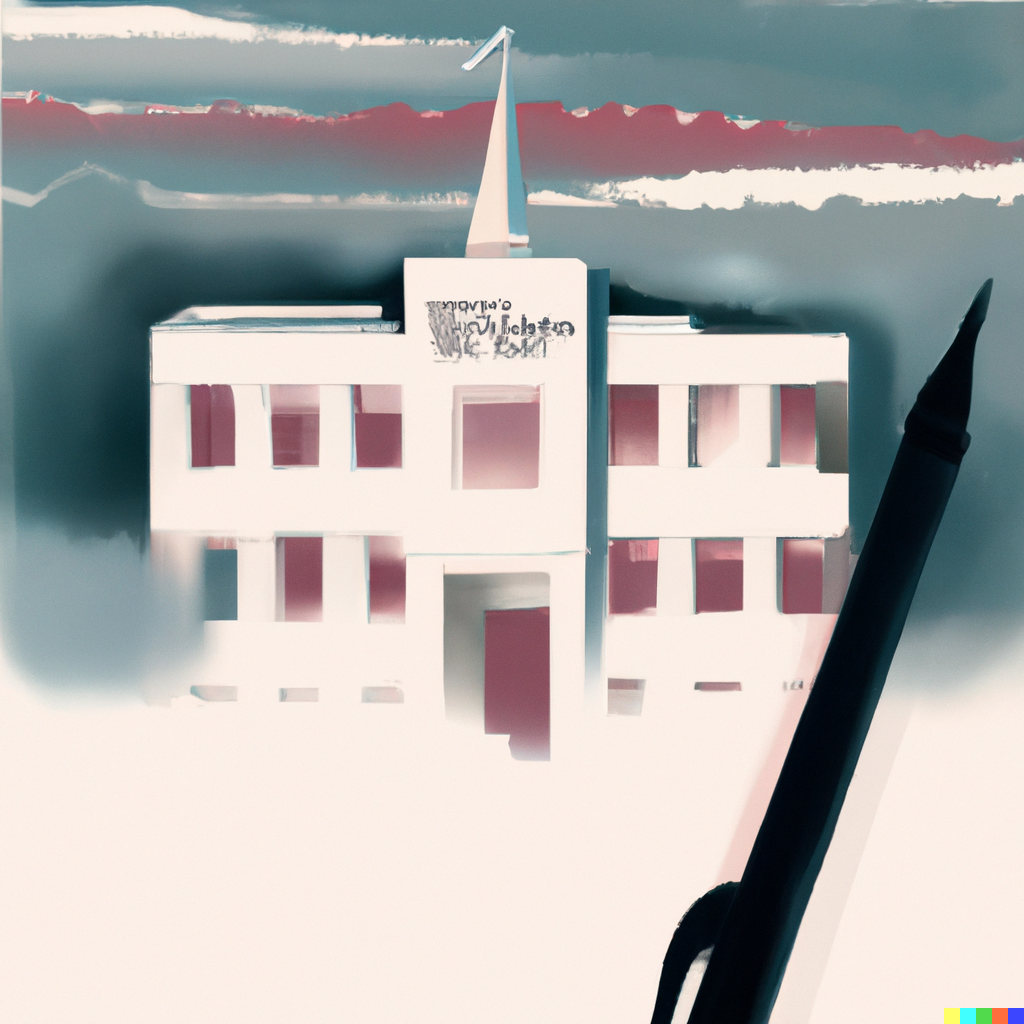
All images were generated using DALL.E 2 (Open AI)
